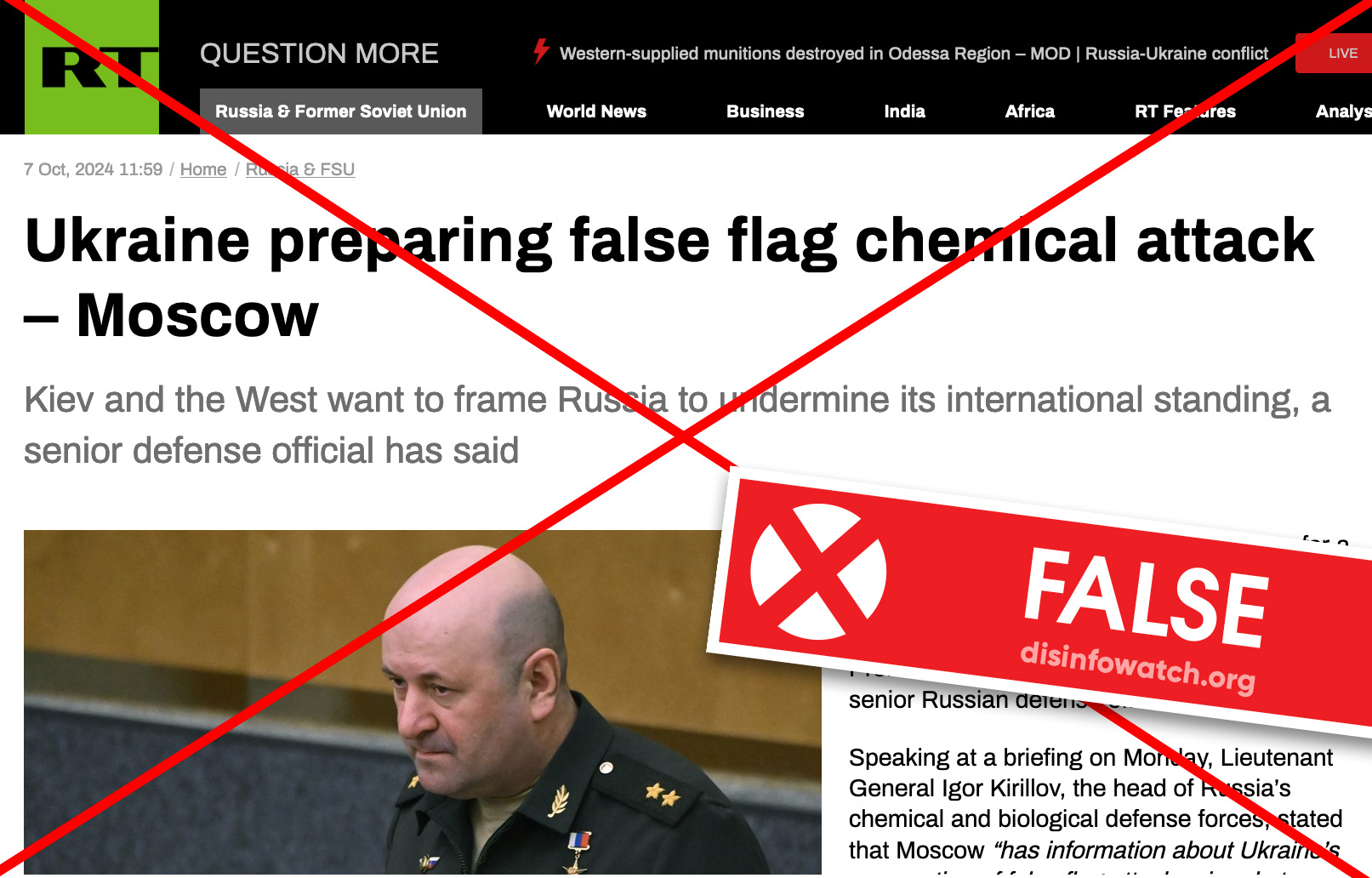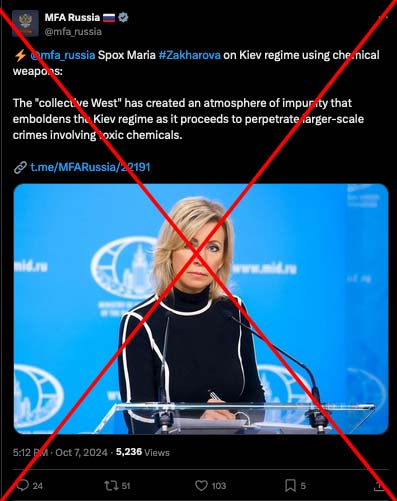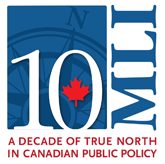
The Claim
An article published on Kremlin state media platform, RT presents a false claims made by Lieutenant General Igor Kirillov, head of Russia’s chemical and biological defense forces, in which he alleges that Ukraine is preparing a false flag chemical weapons attack to frame Russia, with the aim of turning Moscow into a pariah at the Organization for the Prohibition of Chemical Weapons (OPCW).
The article also falsely claims that Ukraine has received training and equipment from the OPCW and NATO to carry out this false flag operation, suggesting Western complicity.
Kirillov also makes the false claim that Ukraine has used chemical weapons in the past, including riot-control agents and chemical weapons disguised as smoke bombs, in multiple incidents, including a recent attack in the Russian town of Sudzha.
The Facts:
There is no independent, verifiable evidence to support the claim that Ukraine has used chemical weapons or is planning to stage a false flag attack to blame Russia. These accusations have not been substantiated by credible sources or international authorities.
Ukraine is a signatory to the Chemical Weapons Convention (CWC) and has not been reported to violate its commitments under the treaty. There is no public evidence to suggest that Ukraine has acquired or used chemical weapons in its defense against Russian aggression.
While it is true that Russia declared the destruction of its chemical weapons stockpiles in 2017 under OPCW supervision, the international community has raised concerns about Russia’s alleged use of chemical agents in incidents such as the poisoning of opposition figures like Alexei Navalny and Sergei Skripal.
Russia has a history of making unsubstantiated claims about false flag operations, often used as a pretext or narrative to deflect responsibility for its own actions. Similar false and completely unsubstantiated claims have been made by the Kremlin about Ukraine’s use of chemical weapons in the past.
Narrative Context:
This article is part of a broader disinformation narrative frequently used by Russian state media to portray Ukraine and the West as aggressors conspiring against Russia. The narrative aims to achieve the following objectives:
Deflect Responsibility:
By accusing Ukraine of planning a false flag operation, the narrative seeks to preemptively absolve Russia of any blame for potential chemical attacks, thereby redirecting suspicion onto Ukraine and its Western allies.
Undermine Western Support for Ukraine:
Suggesting that NATO and the OPCW are complicit in a Ukrainian false flag operation is intended to sow doubt about the integrity of Western institutions and the legitimacy of their support for Ukraine.
Delegitimize International Organizations:
The narrative undermines the credibility of the OPCW by portraying it as biased or manipulated by the West, aligning with a broader strategy to erode trust in international bodies that criticize or take actions against Russia.
Reinforce Russia’s Victimhood:
Positioning Russia as a victim of an international conspiracy aligns with Kremlin messaging that portrays the country as being unfairly targeted and isolated by Western powers.
Create Confusion and Doubt:
By presenting complex and unverified allegations, the narrative aims to create confusion and muddy the waters regarding any future use of chemical weapons in the conflict, making it harder for observers to determine the true source of any attack.
This is yet another example of how the Kremlin uses RT to inject and amplify Kremlin talking points into foreign information environments and to manipulate public perception, framing Russia as a defensive actor in the face of Western and Ukrainian aggression.


